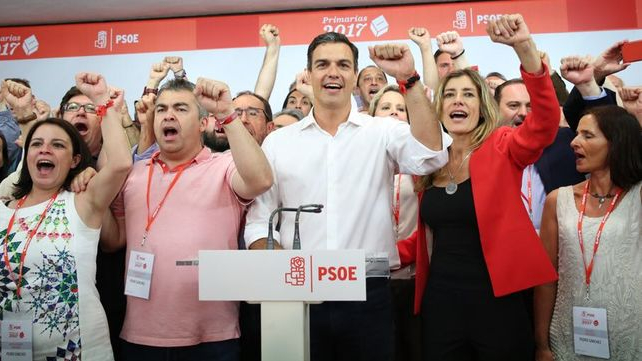
Europe is living a quite negative week in terms of politics and unity, having to face one of the worst immigration crises in recent times.
Artículo disponible en Español | Article disponible en Français
Everything started a week ago, when the new Italian government closed the Italian harbours to a boat from an ONG, the “Aquarius”, which was coming back to Europe loaded with immigrants saved in the Mediterranean, not too far from the coast of Libya. The Italian government proposed to unload the immigrants in Malta, who also refused.
When the news spread, the new Spanish president, Pedro Sánchez, offered to welcome the ship in Valencia, Spain. Both the mayors of Valencia and Barcelona expressed solidarity towards the boat, offering their harbours. After some doubts, mainly due to the distance between the boat and the harbour of Valencia, the proposition was accepted. The Italian navy supplied the ship for the trip, and two navy ships escorted the “Aquarius” during the journey. It will arrive Sunday morning to Valencia (yesterday, 17th). To welcome the nearly 630 immigrants, the authorities have gathered a large amount of support: 2 300 people will be there to take care of the immigrants. Between those 2 300 people, there are some 1 000 volunteers of the Red Cross, 400 national police officers, a hundred policemen, 400 translators, 70 legal translators and close to 150 people from the Health department of the Valencian region. On top of this, there will be 600 official journalists, from close to 140 different newspapers, due to the mediatic impact this event is having.
France has also shown solidarity towards the Spanish government, offering to welcome the immigrants who would like to go to French nation.
While all the newspapers are talking of this event, people are forgetting that in less than 48 hours, some 900 people have arrived to the Andalusian coast, putting the local infrastructure under pressure due to a lack of resources and space to house so many people.
In Ceuta and Melilla, the Spanish government wants to take down the blades present on the fences. These blades were put up during the government of Zapatero in 2005. The goal was to dissuade the potential immigrants of trying to climb and jump over the fences, an event that happens regularly in these two Spanish cities.
This polemic around immigration has arrived to Germany, where various political parties criticize Merkel’s immigration policy of “open doors”. Despite the criticism, the chancellor keeps defending this idea, which is one of the reasons for the increase in extremism and the power/votes of populist parties.
Other critics of the current immigration policy say that helping the boats and saving them in the open sea only helps the criminals who are in charge of this business of human trafficking, as they provide an additional guarantee the immigrants will arrive “safely” to Europe, convincing more of them to pay for the journey. It is also rather surprising that European boats, both from governments and ONGs, have to be in international waters, saving people who come in basic boats that would not have resisted the entire journey if left alone.
The European members have to quickly decide which position to adopt on the subject of immigration, taking in account that, at the current rate, this problem could bring the end of the Union.
While we were finishing this article, two more boats with immigrants saved near Libya arrived to Italy, requesting access to a harbour to unload them. For now, Italy has closed their harbours again.


